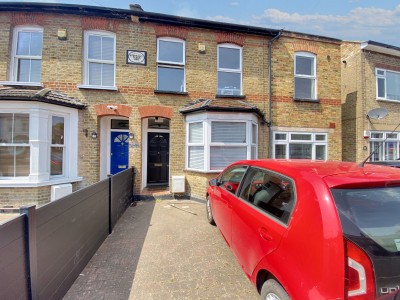The Government aims to boost minimum energy efficiency standards for rental properties, bringing all homes up to a decent standard by 2030.
The government has confirmed its plans to boost minimum energy efficiency standards for private and social rented homes by 2030.
Labour says "too many tenants are exposed to a harsh daily reality of cold, draughty homes and expensive bills".
Currently, private rented homes can be rented out if they meet Energy Performance Certificate E, while social rented homes have no minimum energy efficiency standard at all.
The government will now shortly consult on proposals for private and social rented homes to achieve Energy Performance Certificate C or equivalent by 2030.
The government has also announced a new Warm Homes: Local Grant to help low-income homeowners and private tenants with energy performance upgrades and cleaner heating, and confirmed the continuation of the Public Sector Decarbonisation Scheme, as well as the Warm Homes: Social Housing Fund, which replaces the Social Housing Decarbonisation Fund, to support social housing providers and tenants.
The new Warm Homes: Local Grant replaces the Local Authority Delivery scheme and will start delivery in 2025. Low-income, private tenants will be eligible for support, with the agreement of their landlord. Private tenants are also eligible for support under the Energy Company Obligation.
The announcements kickstart delivery of the government’s Warm Homes Plan, which aims to make homes cleaner and cheaper to run, from installing new insulation to rolling out solar and heat pumps.
Tamsin Lishman, CEO of the Kensa Group, commented: “The Warm Homes: Social Housing Fund offers a time-limited opportunity for social landlords across England to upgrade their housing stock and take people out of fuel poverty. Against the backdrop of high fuel poverty levels, rising energy bills, and ambitious climate targets, this is an important opportunity for landlords to secure funding to provide residents with the best possible heating systems, delivering a triple win of warmer homes, lower energy bills, and reduced carbon emissions.
“Kensa’s solution addresses these challenges directly and is ideally suited to social homes that are considered ‘complex to decarbonise,’ such as high and low-rise flats. Networked heat pumps offer the most viable option for these buildings, maximising emissions reductions, delivering a potential two-band EPC uplift, ensuring the lowest lifecycle costs, and offering residents the lowest running costs, which can significantly alleviate the impact of fuel poverty.
“When the competition opens in October, social landlords must take full advantage of this opportunity to access funding, which provides up to £15,000 per off-gas property and up to £20,000 for on-gas properties. By maximising funding, landlords can implement the best solutions for both their properties and their residents, and with no further funding expected before 2028 now is the time to act."








